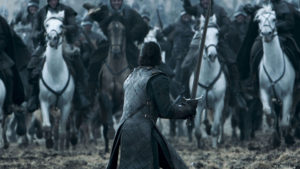 Both Lion and Fences fared better at Saturday’s 31st ASC Awards, than they did cross-town, at the simultaneously-held DGA Awards.
Both Lion and Fences fared better at Saturday’s 31st ASC Awards, than they did cross-town, at the simultaneously-held DGA Awards.
For starters, Lion’s DP, Greig Fraser, took the evening’s top award in the Theatrical Release category, for shooting the story of Saroo Brierley, the Indian boy who became lost and separated from his family for decades, before managing to find and reunite with them after growing up as an adoptee in Australia. At the DGA however, the film’s director Garth Davis was eclipsed by Damien Chazelle winning for La La Land, which becomes, at the moment, the Oscar favorite.
But it continues a great winter for Fraser, who also shot Rogue One, and who prefers a minimalist, natural light approach to his work — with the occasional embedded LED — feeling that “locations can be destroyed by over-lighting,” as he told us earlier.
As for Fences, though nominated for Best Picture, its star and director, Denzel Washington, wasn’t given a similar nod by the DGA, which turned out to be ASC’s gain, as the actor-turned-limner was on hand to accept the Board of Governors Award. He recounted working with storied cinematographer Phillipe Rousselot for his first directorial outing, Antwone Fisher. And though Washington worked with Rousselot again, the cinematographer was unavailable for Fences, but

recommended Danish DP-on-the-rise Charlotte Bruus Christensen.
She came to their first meeting prepared, with a book’s worth of ideas she’d assembled. It reminded Washington of his first dinner meeting with Rousselot, when he asked in all seriousness, where he should place the camera. “You put the camera in front,” Rousselot advised him.
Later in the evening, via videotape, Rousselot — the winner of the ASC’s International Award — said he swiped it from the late, great Nestor Almendros, “from whom I stole ideas.”
But if that was its own homage, the evening was full of them, including an award to Ron Garcia, for Career Achievement in Television. He shot the underrated, neon-and-noir Crime Story, in the 80’s, and then went on to Twin Peaks, though was also quick to credit his production designers for making the shows look great. While accepting his award, he said “art and activism go hand in hand,” an echo of themes that recurred during the evening — especially with an acknowledgement of how many of the people being honored were immigrants, came from somewhere else, or were the sons and daughters of those who’d journeyed before them.
Or perhaps they were pioneers, like cinematographer Nancy Schreiber, who received the ASC President’s Award.
Yet despite the turbulence of the times, these ideas weren’t being hit over peoples’ heads, at least not when contrasted with something like the SAG Awards. We’ll see how the current spate of unsettling, tyrannizing headlines continues to play out up to, and through, Oscar night, however.

But if personal journeys and statements were the topic du jour in remarks, and in the themes of the nominated features, epic, battle-sized cinematography was honored too, though ironically, that came in the “small screen” awards, when Fabian Wagner won for the terrifically-staged Game of Thrones episode, “Battle of the Bastards.”
Standing ovations were strewn throughout the evening. One even came for someone who was neither a nominee or honoree, but, in a sense, a returnee: Col. Terry Virts, who, as an astronaut spent 200 days aboard the International Space Station, and made use of some Canon gear to contribute to the IMAX production A Beautiful Planet.
After that singular perspective, he remarked to us how “trivial” terrestrial squabbles seemed when he returned to Earth and started watching CNN again. At Panavision’s after-event, he wound up talking big-G and small-g Gravity, with Chivo Lubezki, which had Virts gushing later that it was “most amazing — sharing space stories with him!”
But then, for cinematographers, in the end it is literally about perspective. Lifetime Achievement honoree Edward Lachman, is a frequent collaborator with director Todd Haynes, who introduced him. Lachman, known for Carol, Erin Brockovich, the Douglas Sirk-like Far From Heaven, and many others, recalled being summoned to a tropical island by Werner Herzog, where a volcano was close to blowing, and people, according to the director, were “resisting God and country,” by living on the side of it.
The director wanted to capture the existential tension, and finally showed up a couple days after Lachman did. What happens, Lachman wondered, if the volcano erupts while we’re on it!? “We will be skyborne!,” Herzog replied, pointing upward.
That was a pretty good note for an evening about the art of capturing ephemera to (almost) wrap up on.





